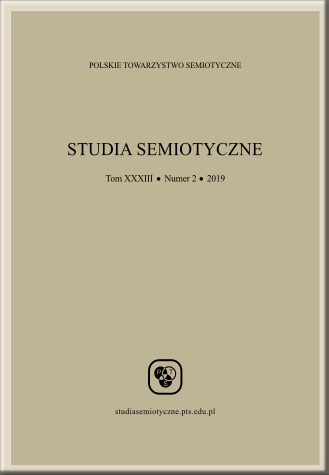Abstrakt
DOI: http://doi.org/10.26333/sts.xxxiii2.08
The main aim of our paper was to present three formal tools for comparing various axiomatic theories of truth. In Section 2 we aimed at showing that there are indeed many different approaches to defining a set of axioms for the notion of truth. In Section 3 we introduced three different \measures of strength" of axiomatic theories of truth, i.e. three reflexive and transitive relations (preorders) on the set of axiomatic theories of truth. We have explained the intuition behind each of them. The three relations were called (from the most fine-grained to the coarsest): Fujimoto definability, model-theoretical strength, proof-theoretical strength. Then in the last section we described how they order the truth theories introduced in Section 2. We observed that theories made equivalent by the coarser relation can be strictly ordered by the next one.
Bibliografia
Cantini, A. (1989). Notes on Formal Theories of Truth. Zeitschrift für mathematische Logik und Grundlagen der Mathematik, 35(1), 97–130.
Cieśliński, C. (2018). The Epistemic Lightness of Truth: Deflationism and its Logic. Cambridge: Cambridge University Press.
Cieśliński, C. (2011). T-equivalences for Positive Sentences. Review of Symbolic Logic, 4(2), 319–325.
Enayat, A., Łełyk, M. and Wcisło, B. (2019). Truth and Feasible Reducibility. The Journal of Symbolic Logic, 1–58. doi:10.1017/jsl.2019.24.
Feferman, S. (1991). Reflecting on Incompleteness. The Journal of Symbolic Logic, 56(1), 1–49.
Fischer, M. and Horsten, L. (2015). The Expressive Power of Truth. Review of Symbolic Logic, 8(2), 345–369.
Friedman, H. and Sheard, M. (1987). An Axiomatic Approach to Self-Referential Truth. Annals of Pure and Applied Logic, 33, 1–21.
Fujimoto, K. (2010). Relative Truth Definability of Axiomatic Truth Theories. Bulletin of Symbolic Logic, 16(3), 305–344.
Hájek, P. and Pudlák, P. (1993). Metamathematics of First-Order Arithmetic. New York: Springer-Verlag.
Halbach, V. (1994). A System of Complete and Consistent Truth. Notre Dame J. Formal Logic, 35(3), 311–327.
Halbach, V. (2011) Axiomatic Theories of Truth. Cambridge University Press.
Kaye, R. (1991). Models of Peano Arithmetic. Oxford: Clarendon Press.
Kotlarski, H., Krajewski, s. and Lachlan, A. (1981). Construction of Satisfaction Classes for Nonstandard Models. Canadian Mathematical Bulletin, 24, 283–93.
Kotlarski, H. and Ratajczyk, Z. (1990). More on Induction in the Language with a Satisfaction Class. Mathematical Logic Quarterly, 36(5), 441–454.
Kripke, s. (1975). Outline of a Theory of Truth. The Journal of Philosophy, 72(19), 690–716.
Łełyk, M. (2017). Axiomatic Theories of Truth, Bounded Induction and Reflection Principles. PhD thesis, University of Warsaw.
Łełyk, M. and Wcisło, B. (2017). Models of Weak Theories of Truth. Archive for Mathematical Logic, 56(5), 1–26. doi:10.1007/s00153-017-0531-1.
Łełyk, M. and Wcisło, B. (2017). Strong and Weak Truth Principles. Studia Semiotyczne—English Supplement, 29, 107–126.
Łełyk, M. and Wcisło, B. (2019). Models of Positive Truth. The Review of Symbolic Logic, 12(1), 144–172.
McGee, V. (1985). How Truthlike Can a Predicate Be? A Negative Result. Journal of Philosophical Logic, 14(4), 399–410.
McGee, V. (1992). Maximal Consistent Sets of Instances of Tarski’s Schema (t). Journal of Philosophical Logic, 21(3), 235–241.
Nicolai, C. (2018). Provably True Sentences Across Axiomatizations of Kripke’s Theory of Truth. Studia Logica, 106(1), 101–130.
Tarski, A. (1995). Pojęcie prawdy w językach nauk dedukcyjnych. In: J. Zygmunt (Ed.), Pisma logiczno-filozoficzne, t. 1: Prawda (pp. 228–282). Warszawa: PWN.


